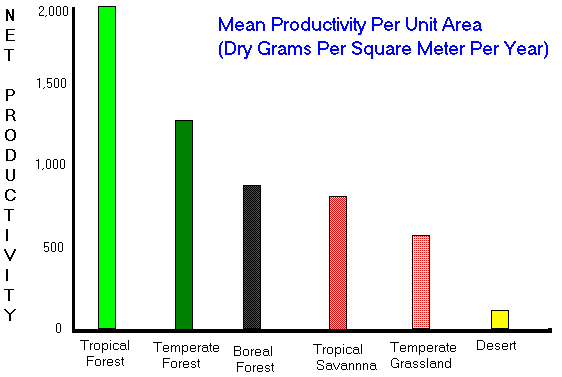Biomass ProductivityNet biomass productivity is the difference between gross productivity (production of plant material by photosynthesis) and respiration. So long as the rate of production exceeds that of respiration, the plant will grow. Net productivity represents the amount of organic material produced by a plant. Net productivity is closely related to a number of environmental factors like climate, soils, and available nutrients. Net biomass production will be highest where there is an ample supply of moisture to meet the needs of plants. Biomass productivity is also high where soils are rich in nutrients and have a positive soil moisture balance. The figure below illustrates this well. With ample rainfall and sunlight, the tropical rain forest ranks the highest in terms of organic matter production. Figure 12.12 Net productivity of selected environments Human pressure on land and vegetation resources for food, wood-based fuel, fiber, and building materials is calling into question whether the earth's net production can sustain such use. Scientists are employing satellite technology to determine the trends in human consumption of net primary production as described in Figure 12.14. Human use of earth's annual production rose from 20 to 25 percent from 1995 to 2005. As society looks to land conversion for biofuels, climate changes, and biodiversity loss occurs, a tipping point at which net production fails to meet demand may be reached in the not so distant future. Figure 12.14 View Human Consumption of NPP. Courtesy NASA GSFC
|

